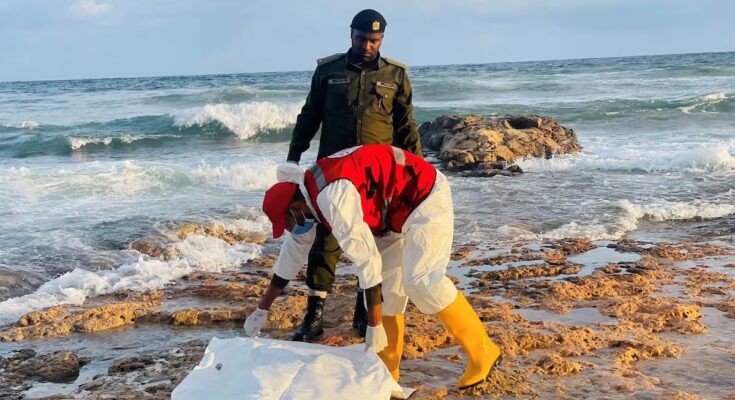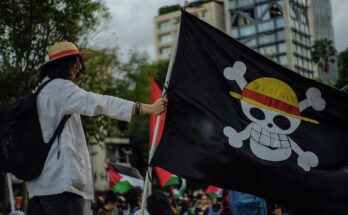More than 1,500 people have died or gone missing in central Mediterranean waters this year while trying to reach European shores, the International Organization for Migration (IOM) reported on Wednesday. The sinking of a boat off the coast of Libya last week, in which 40 occupants disappeared, was the latest event that contributed to the tragic number of victims (1,548 as of November 8, last update).
In total, more than 33,000 migrants have lost their lives in similar circumstances in the Mediterranean since 2014, when the IOM began counting. Meanwhile, maritime rescue NGOs report being subject to increasing criminalization by the EU and several Member States.
Although the figure is slightly lower than that recorded in the same period the previous year (2,093 as of 12 November 2024), the IOM highlighted in a statement “the urgent need for strengthened regional cooperation, expansion of safe and regular routes for migration and more effective search and rescue operations to avoid further loss of life”.
At the same time, in the first 10 months of this year, the EU recorded 152,000 irregular entries, down 22% compared to the same period in 2024, according to the European Border Surveillance Agency (Frontex). The Central Mediterranean route remains the busiest: two out of five irregular entries occurred there.
Humanitarian search and rescue NGOs are experiencing low hours due to the increasing criminalization of their operations through immigration control laws that make their work extremely difficult. The governments of countries such as Italy and Malta, the far-right European political parties and the media of the same ideology baselessly accuse them of encouraging irregular immigration.
One of the most controversial rules is the new version of the directive which penalizes the facilitation of irregular immigration and which is awaiting negotiation in the European Parliament. According to its critics, this leaves in the hands of each country the decision to evaluate by the same standard the lifeguard of a humanitarian rescue vessel, the passenger of a canoe who sits near the helm or steers it, and the actual smuggler of a human trafficking network who profits from it.
For two decades, human rights organizations have been calling for the law to be amended to include a humanitarian clause. However, the new text does not respond to these requests, but rather points towards a criminalization of acts of solidarity.
175,000 lives saved
This point was recently made at an event organized by the left parliamentary group in Brussels to call for political change and commemorate 10 years of work by these organisations, a period in which they claim to have saved 175,000 lives. According to Cecilia Strada, one of the MEPs organizing the event, the civil fleet “is filling a void created by politicians”. “The existence of a civilian fleet should not be necessary, but it is and it is growing,” he said.
In mid-October Strada and the other deputies of the La Izquierda group Tinneke Strik and Estrella Galán presented a proposal to the EU budget for 2026: an allocation of 240 million euros per year for the implementation of the so-called Solidarity Seaa search and rescue program proposed by the EU designed to save lives in the Mediterranean.
It is not only Brussels that legislates on this matter. Italy is the European state that has most limited the activity of humanitarian relief NGOs, with a series of rules in force since January 2023 and included in the Piantedosi decree – surname of the then Italian Minister of the Interior. This rule provides that NGOs do not carry out rescues without prior authorization from the authorities, can only carry out one operation at a time and can only go to their assigned port, which is not always the closest. Furthermore, it is usually very far away, in cities in northern Italy, which forces boats to invest an unnecessary amount of time and budget – for fuel, for example – and puts the lives of rescued people at risk, who sometimes require medical care that they cannot receive until they reach land. Failure to comply with these measures can result in the detention and confiscation of vessels and fines of up to 30,000 euros for organisations.
Doctors Without Borders, one of the most present NGOs in the Mediterranean, was one of the most affected by this decree, to the point that the organization had to permanently suspend activities with its ship, the Geo Barents. This Wednesday, however, he announced his return to sea with another ship, the Oyvonwhich operated as an ambulance in Norway and was adapted and equipped in Valencia. Fulvia Conte, coordinator of the organisation’s rescue teams, called for greater coordination between coastal countries to save lives. “Coastal states, instead of ensuring search and rescue operations, as they should, not only do not support and respond to the rescue needs that people raise, but they support a system of border control and obstruction of those who help these people,” he said.
Libya’s violence
The organizations also reported an increase in violent attacks in international waters by the Libyan Coast Guard against migrants and rescue ships themselves. As happened last August, when a patrol boat from the North African country opened fire on the Viking Oceana rescue vessel operated by the NGO SOS Mediterranée. The boat from which the aid workers were shot had been donated by Italy through an EU-funded migration management programme.
Libya is perhaps the biggest obstacle on the road for those undertaking the journey to Europe. The country, a failed state where countless torture, abuse and illegal detentions against the migrant population have been documented, as well as numerous sudden returns of passengers from boats that were already in international waters and which were captured and brought back to the North African country. According to Amnesty International, between 2017 and 2022, at least 82,000 migrants were intercepted and returned to Libya.
It has even been classified as “unsafe” by the United Nations. Together with Morocco, Mauritania, Tunisia and Egypt, it is one of the African countries that has signed millionaire agreements – both with the EU and in this case with Italy – to help stop the departure of clandestine ships.
To draw attention to the impunity with which these actors operate in the Mediterranean, a group of 13 NGOs in the sector announced on November 6 the decision to suspend communications with the Libyan coast guard to try to avoid deportations to this country. This means disobeying another point of the Piantedosi decree which obliges NGO ships to obey the orders of the maritime rescue center in Tripoli.
In this sense, MEP Estrada underlined in Brussels that NGOs must continue to work at sea. “We must document the injustices and violence committed daily at sea by various armed actors who finance themselves with our taxes, which is a shame,” he criticized.



